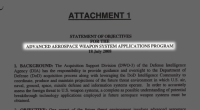Share this @internewscast.com

When addressing climate change, as Al Gore often highlights, the main obstacle is not the unknowns, but the certainties that turn out to be incorrect.
Recent research underscores the complexity of Earth’s climate, promoting the need for realistic energy and climate strategies.
A study by China’s Tongji University reveals a “surprising shift” in Antarctica: following years of declining ice, there is now a record-breaking increase in ice accumulation.
The paper takes advantage of very precise measurements of Antarctic ice mass from a series of NASA satellites called GRACE (Gravity Recovery and Climate Experiment).
Since the first GRACE satellite was launched in 2002, Antarctica has seen a steady decline in the total mass of its glaciers. Yet the new study found the decline reversed from 2021 to 2023.
Melting Antarctic ice contributes to global sea-level rise, so a reversal of melting will slow that down. Understanding the dynamics of ice mass on Antarctica is thus essential.
The recent Antarctica shift makes only a small dent in the overall ice loss from 2022, but comes as a surprise nonetheless.
A second new paper, a preprint now going through peer review, finds a similar change at the opposite end of the planet.
âThe loss of Arctic sea ice cover has undergone a pronounced slowdown over the past two decades, across all months of the year,â the paperâs US and UK authors write.
They suggest that the âpauseâ in Arctic sea ice decline could persist for several more decades.
Together, the two studies remind us that the global climate system remains unpredictable, defying simplistic expectations that change moves only in one direction.
In 2009, then-Sen. John Kerry warned that the Arctic Ocean would be ice-free by 2013: âScientists tell us we have a 10-year window â if even that â before catastrophic climate change becomes inevitable and irreversible,â he said.
Today, six years after that 10-year window closed, catastrophic climate change has not occurred, even as the planet has indeed continued to warm due primarily to the combustion of fossil fuels.
Partisans in the climate debate should learn from Kerryâs crying wolf.
On one side, catastrophizing climate change based on the most extreme claims leads to skepticism when the promised apocalypse fails to occur on schedule.
On the other side, studies like the two surprising polar-ice papers reveal climate complexities, but donât prove climate change isnât real and serious.
Policy-makers today appear to be embracing energy realism over a myopic rush to net zero at all costs. But their newfound pragmatism should still embrace decarbonizing the economy, as well as reducing the costs of energy, expanding global energy access and ensuring secure and reliable energy supplies.
These multiple objectives are not always in concert, which is why energy policy is so challenging.
We know that humans affect the climate system in many ways â greenhouse gas emissions in part, but also through land management, air pollution and vegetation dynamics.
At a planetary scale the net effect of these changes is a warming of the planetary system.
Yet anticipating regional and local consequences is far more difficult, and irreducible uncertainties mean that adapting to climate variability and change comes down to risk management as we balance competing objectives.
Fortunately, pragmatic energy policy has plenty of low-hanging fruit â expanding nuclear power and accelerating the retirement of coal are good places to start.
The surprises revealed by the two new papers about polar ice also remind us that we need to be prepared for unexpected behavior of the climate system, regardless of the underlying causes of change.
History tells us that climate can shift abruptly, with profound consequences for society.
For instance, the 1870s saw a wide range of climate extremes across the planet, by some estimates contributing to the deaths of 4% of global population.
More recently, the climate extremes of the 1970s led to many new US government programs focused on monitoring and researching climate, such as the National Oceanic and Atmospheric Administration.
Such efforts are crucially important because we canât always anticipate the results of research. If we could, we wouldnât need data and science.
Perhaps the most important lesson to take from the new polar-ice findings is that ongoing efforts in Washington, DC to gut climate data and research are deeply misguided.
The global climate system has more surprises in store for us â and we ignore them at our peril.
Roger Pielke Jr. is a senior fellow at the American Enterprise Institute who writes at The Honest Broker on Substack.
















